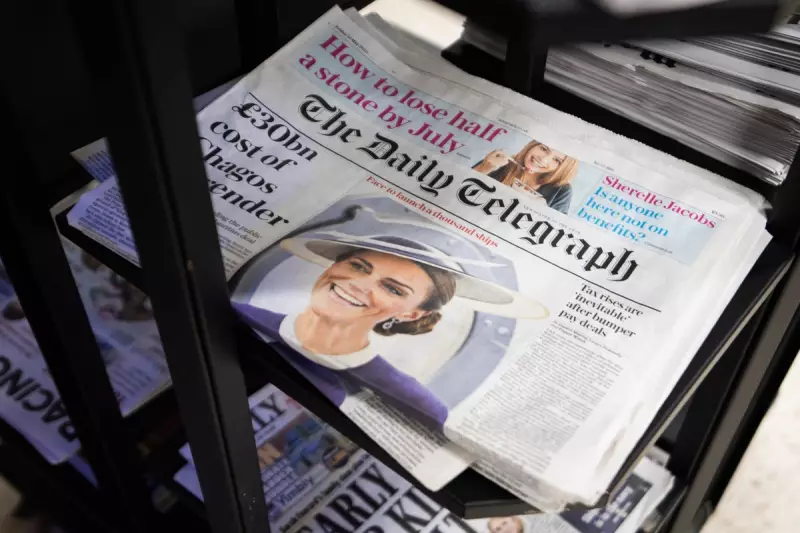
The Deal That Fell Through
The proposed £500 million acquisition of The Telegraph by US private equity firm RedBird Capital Partners has officially collapsed, creating significant uncertainty for one of Britain's most established news organisations. The deal's failure leaves the 170-year-old newspaper in a precarious financial position and raises urgent questions about its future ownership.
Funding Limbo and Political Opposition
Since Lloyds Bank repossessed the media group from the Barclay family two years ago, The Telegraph has been seeking new ownership. The RedBird consortium, which included International Media Investments controlled by UAE's Sheikh Mansour, initially agreed to purchase the newspaper. However, concerns about foreign government interference prompted significant opposition from senior journalists, political commentators, and media figures.
Despite RedBird refining its bid to reduce Sheikh Mansour's holding to a more acceptable 15%, critics remained unsatisfied. The opposition focused on RedBird chair John Thornton's connections with China, despite no evidence of Chinese investors in the Telegraph purchase group. Gerry Cardinale's firm eventually withdrew from the £500m takeover, leaving the sale process back at square one.
Potential Suitors and Financial Challenges
Several potential buyers have emerged as speculation grows about The Telegraph's future. Chelsea FC co-owner Todd Boehly has expressed interest, while Daily Mail proprietor Lord Rothermere – previously part of the RedBird consortium – might consider a bid. However, competition authorities would likely scrutinise any move that gives a single owner control over multiple national newspapers.
Other suggested figures include former advertising tycoon Maurice Saatchi, though his willingness to enter the bidding remains uncertain. The fundamental challenge remains the substantial financial commitment required – both to purchase the newspaper and invest in its future, despite the asset's value declining since the Barclay twins acquired it for £665 million in 2004.
Whoever ultimately purchases The Telegraph must contend with an assertive newsroom and commentators who strongly believe they know what's best for the publication. Cardinale had articulated ambitions to transform the newspaper into "the most successful conservative newspaper in the English-speaking world" and create a global centre-right equivalent of The New York Times.
Broader Industry Context and Missed Opportunity
The collapse of the RedBird deal comes amid rapid changes in media ownership models. Cardinale's firm recently paid $150 million for The Free Press, while Steve Bartlett's Steven.com achieved a $425 million valuation. Meanwhile, The Telegraph's competitors continue advancing while the newspaper remains in stasis.
RedBird had emphasised its commitment to editorial independence, with Cardinale stating: "We don't tell Ben Affleck and Matt Damon what movies to make at Artists Equity and we won't ever compromise the editorial independence of The Telegraph." The firm had planned to establish an independent advisory board chaired by Lord Guy Black, deputy chair of The Telegraph and a respected press freedom advocate.
With the secured future offered by RedBird now vanished, The Telegraph faces renewed uncertainty. Those who opposed the takeover may have achieved their immediate goal, but the newspaper's long-term prospects have become significantly less certain as it returns to the drawing board in search of a new owner.





